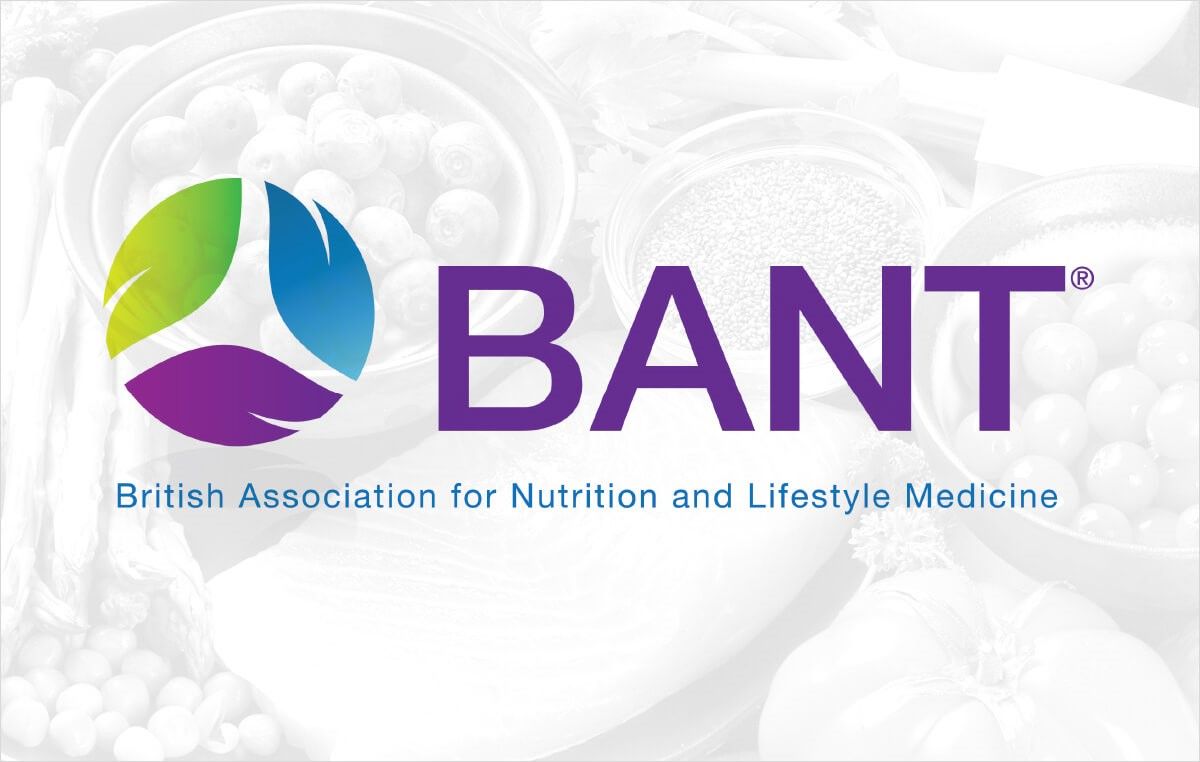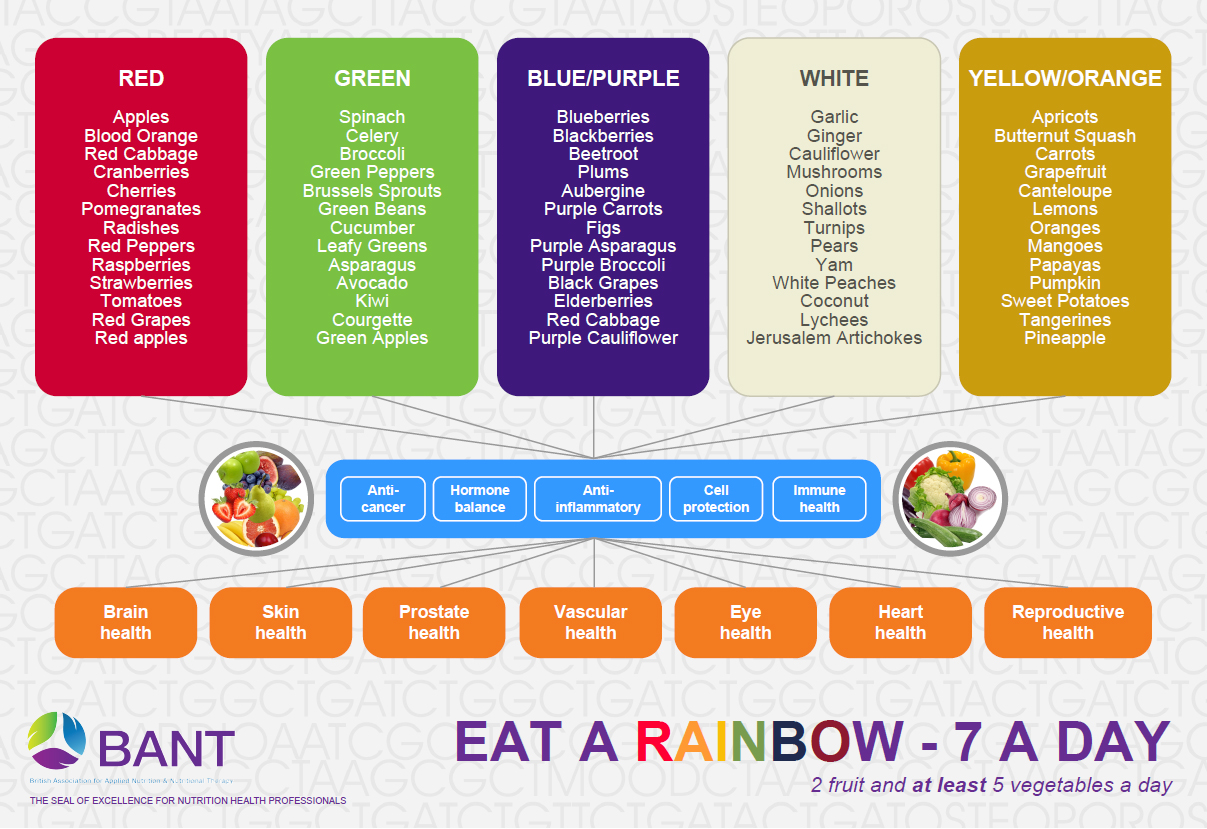
23 Feb 2017 BANT Comments on a Study Which States ‘You Should be Eating 10 Pieces of Fruit or Veg Every Day’
BANT was interested to see today’s news about eating 10 pieces of fruit or veg everyday, and how most people would find it difficult to fit this recommendation into their diet. Whilst this may be true for some, it is clear that the “5-a-day” government-issued guidelines are out of date. The 2015 BANT ‘Wellbeing Guidelines’ provided the recommendation that seven portions of vegetables and fruit should be eaten daily to support health. They were designed to generally encourage people to eat more fruit and vegetables. According to a review of 95 studies published in the International Journal of Epidemiology in 2017, those eating 7 portions of fruit and vegetables a day experienced a lower risk of cancer or heart attacks. Researchers found that vegetables contributed to decreased risk more strongly than fruit and that cruciferous vegetables (cabbage, broccoli etc.) provided the most benefits.
BANT has a practical infographic ‘Eat a Rainbow’ to encourage the consumption of a wide range of fruit and vegetables:
BANT would like to highlight that eating more vegetables of different colours (Eating a Rainbow) is key to a healthy diet (Oyebode et al., 2014) and BANT practitioners generally recommend eating a higher proportion of vegetables to fruit when meeting the daily target, to limit sugar intake. It is important to note that fructose is also sugar and has been widely linked to obesity and type 2 diabetes. On a daily target of seven vegetables and fruit BANT, therefore, recommends two portions of fruit per day (and only one if the goal is weight loss). BANT does not suggest a limit on vegetable and salad intake, although a minimum of five portions is recommended and fresh is recommended over frozen and canned fruit consumption.
BANT Registered Nutritional Therapists take into account individuality that enables personalisation of dietary advice based on the most up-to-date research available. They do not suggest ‘one-size-fits-all’ advice following the health trend of the moment.
Looking for a BANT Registered Nutritional Therapist is easy; just click on the link for a full listing of our Registered Nutritional Therapists area by area: https://practitioner-search.bant.org.uk/.
– Ends –
Click here to download the PDF version of this comment.
FOR FURTHER INFORMATION PLEASE CONTACT:
Daniel O’Shaughnessy
Tel: +44 7540 722307
NOTES TO EDITORS:
The British Association for Applied Nutrition and Nutritional Therapy (BANT) is the professional body for Registered Nutritional Therapists. Its primary function is to assist its members in attaining the highest standards of integrity, knowledge, competence and professional practice, in order to protect the client’s interests; nutritional therapy and the registered nutritional therapist.
Nutritional therapy is the application of nutrition science in the promotion of health, peak performance and individual care. It is a progressive approach to health optimisation. Registered Nutritional Therapists are recognised by the Professional Standards Authority to be as competent as other traditional healthcare providers. It has been recognised that they can make a difference by working together with healthcare providers as part of multidisciplinary teams under NHS commissioning.

